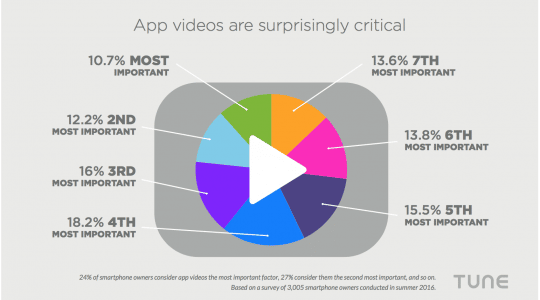App marketing is broken, and we have the data to prove it.
The Problem
In the online world, marketers clearly recognize the value of both paid and organic channels, and consequently, the time and resources dedicated to each strategy has achieved a certain balance. Unfortunately, this balance seems to have been lost somewhere along the way in app marketing, and companies appear to focus more heavily on a single channel (i.e. either paid or organic).
In certain instances, a one-sided approach has worked and resulted in very successful apps. Apps that rely heavily on paid marketing usually have an extremely accurate lifetime-value (LTV) measurement and marketers know exactly how much they can afford to spend on paid installs. It makes sense for them to tap a reliable and steady source of downloads through a publisher such as Twitter. Other apps, like Flappy Bird, have zero marketing spend and still manage to dominate the Top Charts purely through organic installs.
This one-sided thinking is what’s broken about app marketing. It’s important to remember that these types of apps are the outliers and not the norm. For the other 99.9% of apps, having a strategic mix between paid and organic marketing efforts is vital to success.
Why is it a problem?
The reason this strategic mix is so important is because of the unique relationship that exists between paid and organic installs. In the app world, running paid install campaigns boosts two (of the many) specific metrics that impact an app’s rank in the app store: total downloads and download velocity. With these paid campaigns, the boost to both metrics also increases the app’s ranking in the Top Charts and search, which leads to greater visibility and more organic downloads.

With so many apps in the app store, it’s very difficult to thrive on organic marketing alone. For every app like Flappy Birds that rises to the Top Charts with no spend, there are thousands of apps that have almost no downloads. This crowded marketplace often leads app marketers to focus on paid marketing. However, as we showed above, you can’t think about paid installs without also thinking about organic installs.
Understanding this relationship is key to getting the most out of your app marketing efforts. But there is very little data available about exactly how this relationship behaves. This is exactly why we decided to conduct our most recent study, the goal of which was to answer the question: for every paid install, how many organic installs can an app expect to see?
Unveiling the Mystery
Although the more progressive app marketers out there are starting to realize the necessity of thinking about paid and organic app marketing together, many still ignore it. It is fairly common knowledge that your search and Top Charts ranking tends to increase after a paid campaign. But there is no quantitative data showing how paid installs actually impact organic installs (which certainly contributes to why many marketers continue to ignore the paid and organic relationship).
Until now.
After conducting a study on thousands of apps across both Google Play and the Apple App Store, we found that for every paid install an app receives, it can expect to see an additional 1.5 organic installs, on average.
However, that’s just the tip of the iceberg. We also have data breaking down how this 1.5x multiplier changes across operating systems and categories. For example, according to our data, iOS Games can expect to see 5.4 organic installs for every paid install.
This data has huge implications. But before you get ahead of yourself, realize that this is a trend, and scale matters (many of the apps had over one million installs). If you go out tomorrow and buy 50 installs, it’s not guaranteed that you’ll see 75 organic installs right away (or ever).
To fix your app marketing efforts, you need to truly understand how the pieces fit together.
Author
Becky is the Senior Content Marketing Manager at TUNE. Before TUNE, she handled content strategy and marketing communications at several tech startups in the Bay Area. Becky received her bachelor's degree in English from Wake Forest University. After a decade in San Francisco and Seattle, she has returned home to Charleston, SC, where you can find her strolling through Hampton Park with her pup and enjoying the simple things in life.




Leave a Reply
You must be logged in to post a comment.